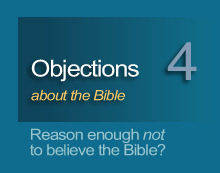WHY THIS?
There are two brief passages concerning Judas that read differently.
Are these different facets of the same event, or an error in recounting Judas' fate?
"What happened to Judas - hung himself per Matthew 27, or bought a field and fell per Acts 1?"
RESPONSE:
The two books (Matthew and Acts) have different authors that are speaking about the same event. We see that situation in the four gospels as well (Matthew, Mark, Luke, and John). I think the paradox is handled in the same way that we address occasional differences between those same books; namely by first asking if there is a way to reconcile both accounts as true. In other words, could these passages be not contradictory, but complementary?
Here are the pertinent verses (NASB):
Then when Judas, who had betrayed Him, saw that He had been condemned, he felt remorse and returned the thirty pieces of silver to the chief priests and elders, saying, "I have sinned by betraying innocent blood." But they said, "What is that to us? See to that yourself!" And he threw the pieces of silver into the sanctuary and departed; and he went away and hanged himself.
And the chief priests took the pieces of silver and said, "It is not lawful to put them into the temple treasury, since it is the price of blood." And they counseled together and with the money bought the Potter's Field as a burial place for strangers.
Matthew 27:3-7
"Brethren, the Scripture had to be fulfilled, which the Holy Spirit foretold by the mouth of David concerning Judas, who became a guide to those who arrested Jesus... (Now this man acquired a field with the price of his wickedness; and falling headlong, he burst open in the middle and all his bowels gushed out...)
Acts 1:16-19
In the case of the field and the fate of Judas, such a reconciling between Acts and Matthew would ask the reader to believe several things:
1. That Judas did not go back and retrieve his pieces of silver from the temple nor transact a real estate purchase so as to buy a place to hang himself. First of all, why buy land just to kill yourself? Secondly, isn't his suicide portrayed as a heat-of-the-moment action; not a well thought-out event following an undetermined period of real estate shopping?
2. That the passage "acquired a field with the price of his wickedness" is properly interpreted to say Judas' ACTIONS effectively bought that field. It would be like a historian writing "our Founding Fathers bought this republic with their blood". No, revolutionary patriots did not go around selling pints of hemoglobin, but their cumulative actions, as a matter of consequence, achieved an end result even after many were dead.
3. That Judas' body was both hung, and fell from some height to burst open. Admittedly these two details are not identical like I've always wished them to be. That is unfortunate when you wonder what unbelievers might think if these two verses were the only ones they had ever read. Well, I and perhaps yourself have read the entire Bible and know the sixty-six books mesh extraordinarily well; and usually easily and apparently...BUT not so apparently in this case.
Therefore, if 99.9% of Scripture meshes perfectly, can the hanging and falling be reconciled with equal surety? Yes - IF Judas hung himself AND subsequently his body fell and burst open; eitherů
a.) falling from a high place during or after the process of hanging himself, or
b.) falling a short distance after his body had long since died from hanging and was rotting (in which case it would not need to fall far to burst open).
Perhaps if we knew the geography of the place where Judas died we could estimate which scenario was most likely. I don't know the geography, and it isn't clear which action definitively killed Judas, so I can't tell you if he died from hanging and then his body eventually dropped, or a botched attempt at hanging left him crashing to the ground below.
Still not sure you buy my explanation? Then consider these three different statements about Peter Jackson's King Kong:
a.) Kong was shot by airplanes,
b.) Kong fell off the Empire State Building,
c.) "T'was beauty killed the beast"Which one correctly identifies how King Kong ended up dead? Answer: all three; two literally, and one figuratively. They aren't conflicting, they're complementary; together painting the full picture of how King Kong died. So if you can understand how King Kong 'bought the farm', you can probably understand how Judas died and bought that field.
(Books which talk more about these verses concerning Judas include Norman Geisler's "When Critics Ask" and Gleason Archer's "Encyclopedia of Bible Difficulties". I've looked at Geisler's piece which I've basically reflected above, but I don't know what Archer has to say on this.)



Expanded!